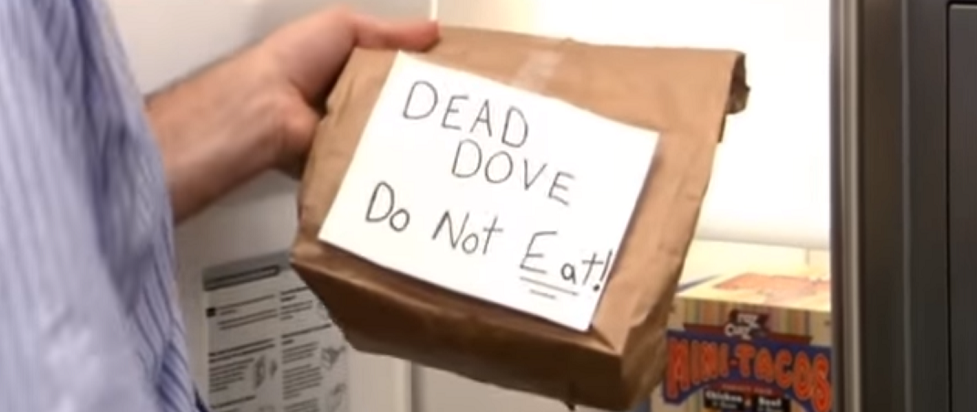Mark Dominus (陶敏修)
mjd@pobox.com

Archive:
| 2025: | JFMAMJ |
| JAS | |
| 2024: | JFMAMJ |
| JASOND | |
| 2023: | JFMAMJ |
| JASOND | |
| 2022: | JFMAMJ |
| JASOND | |
| 2021: | JFMAMJ |
| JASOND | |
| 2020: | JFMAMJ |
| JASOND | |
| 2019: | JFMAMJ |
| JASOND | |
| 2018: | JFMAMJ |
| JASOND | |
| 2017: | JFMAMJ |
| JASOND | |
| 2016: | JFMAMJ |
| JASOND | |
| 2015: | JFMAMJ |
| JASOND | |
| 2014: | JFMAMJ |
| JASOND | |
| 2013: | JFMAMJ |
| JASOND | |
| 2012: | JFMAMJ |
| JASOND | |
| 2011: | JFMAMJ |
| JASOND | |
| 2010: | JFMAMJ |
| JASOND | |
| 2009: | JFMAMJ |
| JASOND | |
| 2008: | JFMAMJ |
| JASOND | |
| 2007: | JFMAMJ |
| JASOND | |
| 2006: | JFMAMJ |
| JASOND | |
| 2005: | OND |
Subtopics:
| Mathematics | 245 |
| Programming | 99 |
| Language | 95 |
| Miscellaneous | 75 |
| Book | 50 |
| Tech | 49 |
| Etymology | 35 |
| Haskell | 33 |
| Oops | 30 |
| Unix | 27 |
| Cosmic Call | 25 |
| Math SE | 25 |
| Law | 22 |
| Physics | 21 |
| Perl | 17 |
| Biology | 16 |
| Brain | 15 |
| Calendar | 15 |
| Food | 15 |
Comments disabled
Sun, 28 May 2023
The Master of the Pecos River returns
Lately I have been enjoying Adam Unikowsky's Legal Newsletter which is thoughtful, informative, and often very funny.
For example a recent article was titled “Why does doctrine get so complicated?”:
After reading Reed v. Goertz, one gets the feeling that the American legal system has failed. Maybe Reed should get DNA testing and maybe he shouldn’t. But whatever the answer to this question, it should not turn on Article III, the Rooker-Feldman doctrine, sovereign immunity, and the selection of one from among four different possible accrual dates. Some disputes have convoluted facts, so one would expect the legal analysis to be correspondingly complex. But this dispute is simple. Reed says DNA testing would prove his innocence. The D.A. says it wouldn’t. If deciding this dispute requires the U.S. Supreme Court to resolve four difficult antecedent procedural issues, something has gone awry.
Along the way Unikowsky wanted to support that claim that:
law requires the shallowest degree of subject-matter expertise of any intellectual profession
and, comparing the law with fields such as medicine, physics or architecture which require actual expertise, he explained:
After finishing law school, many law students immediately become judicial law clerks, in which they are expected to draft judicial opinions in any area of law, including areas to which they had zero exposure in law school. If a judge asks a law clerk to prepare a judicial opinion in (say) an employment discrimination case, and the student expresses concern that she did not take Employment Law in law school, the judge will assume that the law clerk is making a whimsical joke.
I laughed at that.

Anyway, that was not what I planned to talk about. For his most recent article, Unikowsky went over all the United States Supreme Court cases from the last ten years, scored them on a five-axis scale of interestingness and importance, and published his rankings of the least significant cases of the decade”.
Reading this was a little bit like the time I dropped into Reddit's r/notinteresting forum, which I joined briefly, and then quit when I decided it was not interesting.
I think I might have literally fallen asleep while reading about U.S. Bank v. Lakeridge, despite Unikowsky's description of it as “the weirdest cert grant of the decade”:
There was some speculation at the time that the Court meant to grant certiorari on the substantive issue of “what’s a non-statutory insider?” but made a typographical error in the order granting certiorari, but didn’t realize its error until after the baffled parties submitted their briefs, after which the Court decided, whatever, let’s go with it.
Even when the underlying material was dull, Unikowsky's writing was still funny and engaging. There were some high points. Check out his description of the implications of the decision in Amgen, or the puzzled exchange between Justice Sotomayor and one of the attorneys in National Association of Manufacturers.
But one of the cases on his list got me really excited:
The decade’s least significant original-jurisdiction case, selected from a small but august group of contenders, was Texas v. New Mexico, 141 S. Ct. 509 (2020). In 1988, the Supreme Court resolved a dispute between Texas and New Mexico over equitable apportionment of the Pecos River’s water.
Does this ring a bell? No? I don't know that many Supreme Court cases, but I recognized that one. If you have been paying attention you will remember that I have blogged about it before!
I love when this happens. It is bit like when you have a chance meeting with a stranger while traveling in a foreign country, spend a happy few hours with them, and then part, expecting never to see them again, but then years later you are walking in a different part of the world and there they are going the other way on the same sidewalk.
[Other articles in category /law] permanent link


